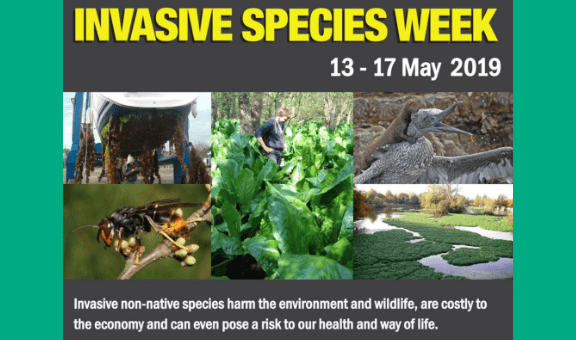Invasive non-native species harm the environment and wildlife, are costly to the economy, and can even pose a risk to our health and way of life.
During Invasive Species Week, organisations across the UK, Ireland, Jersey, Guernsey and the Isle of Man are working together to raise awareness and ask everyone to help prevent their spread to protect the environment and recreational spaces for future generations to enjoy!
Invasive species are one of the top five direct drivers of biodiversity loss worldwide. In Britain they harm native wildlife by damaging habitat, preying on or out-competing other plants and animals, and spreading disease. Our natural world is already under pressure from other factors including climate change and habitat destruction, and invasive species reduce the ability of native wildlife to cope with these pressures and vice versa.
The economy
Invasive species cost the British economy over £1.7 billion a year. Examples of costs include damage to buildings and infrastructure, interference with the production of food and materials, delays to work, and high management costs for established invasive species.
Our health and way of life
Some invasive species are irritants of our skin or respiratory system, cause road traffic accidents, or are pests in our homes. Others increase our risk of being flooded, or prevent us from enjoying recreational spaces and activities.
What’s the urgence?
If we don’t act, the problem of invasive species will continue to escalate at an ever increasing rate, causing us to feel more of the impacts and incur more cost every year.
How are invasive species spread?



